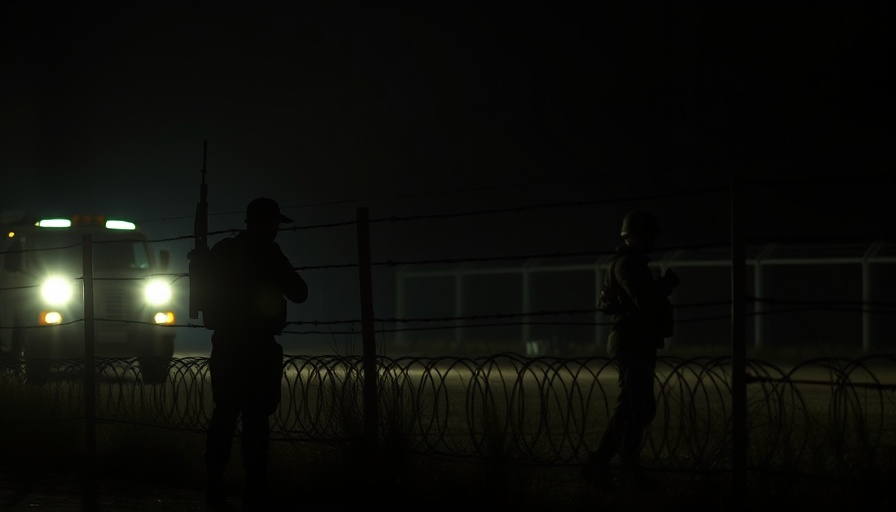
Migrants in New Mexico Face Unprecedented Charges at the Border
In a remarkable development along the U.S.-Mexico border, immigrants detained in southern New Mexico are being charged with breaching a newly designated national defense area. This legal maneuver has emerged following the U.S. Army's assumption of oversight across a 170-mile stretch of the border, marking a significant shift in how immigration enforcement is conducted in this region.
Understanding the New Charges
According to reports, the charges against at least a half-dozen immigrants involve unauthorized entry onto land now classified as a military installation linked to U.S. Army Garrison Fort Huachuca in Arizona. U.S. Attorney Ryan Ellison has signed off on these charges, redefining the legal landscape for cross-border movement. This development highlights a strategic pivot by federal authorities amidst ongoing discussions about the role of military personnel in domestic law enforcement.
The Implications of Military Involvement
Traditionally, the Posse Comitatus Act limits military involvement in civilian law enforcement. However, the actions taken by the Army open a new chapter, with Defense Secretary Pete Hegseth asserting that soldiers now possess the authority to apprehend those crossing into military-designated zones. "Any illegal attempting to enter that zone is entering a military base, a federally protected area," he stated, reinforcing the seriousness of the situation.
A Warning from Legal Experts
The implications of this novel approach raise concerns among civil rights advocates and legal experts. Rebecca Sheff, an attorney with the New Mexico branch of the ACLU, warns that this military buffer zone represents a troubling departure from established legal principles. She cautions that the erosion of boundaries delineating military and civilian jurisdictions could set dangerous precedents, potentially leading to prosecutions of U.S. citizens residing near the border.
Responses from Advocacy Groups
Advocacy groups are voicing their discontent regarding this escalated militarization of the border. Many argue that such measures not only hinder humanitarian efforts but also contribute to an environment of fear and instability among migrant families seeking refuge and safety. Legal challenges could arise as these advocacy groups work to protect the rights of individuals who are navigating a complex and often hostile immigration system.
Similar Trends Across the Nation
This trend of increased military presence and novel charges against migrants is not isolated. Similar practices have emerged in various contexts along the U.S.-Mexico border. Border Patrol has pursued more aggressive policies, diminishing the protections originally afforded to migrants in certain areas. Such actions emphasize a broader movement toward reinforcing national defense at the expense of individual rights, particularly those of vulnerable populations.
What to Expect Moving Forward
As the newly defined national defense area continues to evolve, it is crucial to monitor the implications of these changes for both migrants and local communities. The potential for further military-enforced measures could escalate tensions, leading to increased disputes over civil liberties and human rights.
Considerations for the Future
Understanding how these developments affect the lives of migrants is key. As humanitarian crises unfold, there is a pressing need for discourse around appropriate responses that balance national security with compassion and respect for human rights. It is imperative for citizens and lawmakers alike to engage in conversations that forge a path toward equitable and humane immigration policies.
A Call for Awareness and Action
The situation at the New Mexico border serves as a stark reminder of the complexities and challenges facing both migrants and border communities. As these changes unfold, staying informed and advocating for responsible, humane treatment for all individuals entering the country is vital. Engaged citizenry may lead to more compassionate policies addressing migration and border security.
 Add Element
Add Element  Add Row
Add Row 



 Add Row
Add Row  Add
Add 


Write A Comment